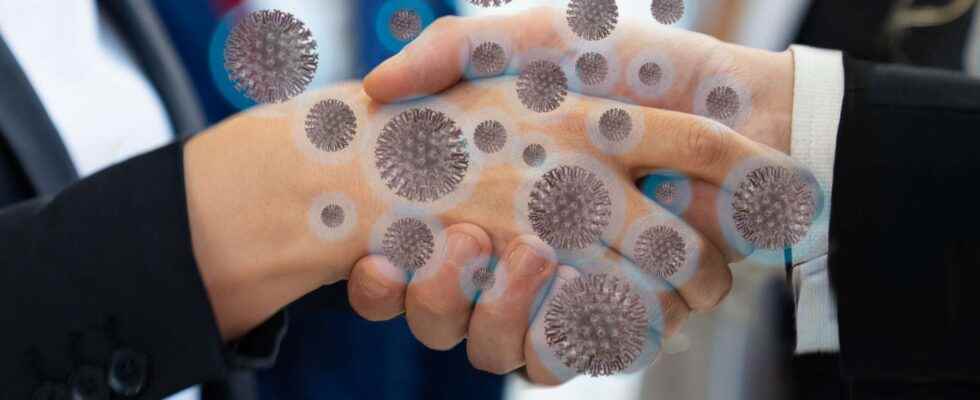Vaccination against Covid-19 seems to protect people from the risk of complications from the disease. But the reduction in the circulation of the virus in the general population remains to be demonstrated in real situations. Recent studies, carried out in Israel and the United Kingdom, help to show the effectiveness of the vaccine in reducing the transmission of the SARS-CoV-2 virus.
During the early stages of the campaign vaccination against the Covid-19the aim was to protect people at risk from complications related to pathology and thus avoid deaths and hospitalizations.
Indeed, vaccination protects the individual so that he does not develop a serious form of the disease thanks to the antibody present, boosted by the vaccine. The efficacy data of the Pfizer-BioNTech vaccine show that today, in France, the risk of hospitalization linked to Covid-19 is reduced by 87% in vaccinated people over 75 years of age. At the same time, a 91% reduction in the risk of death is observed in the same population.
In fact, the virus will be present in lesser quantities in the body but could potentially be transmitted from one person to another. On other models of virally transmitted diseases (such as HIV), scientists now agree that the decline in viral load significantly decreases the contagiousness. We can therefore reasonably estimate that having less than virusis to be less infectious.
Recent studies in real life
Studies to assess the contagious potential of a person vaccinated against Covid-19 must be carried out live. For the time being, the available results relate mainly to the Pfizer-BioNTech vaccine, in particular thanks to recent work carried out in Israel and the United Kingdom.
A study published in the first quarter of 2021, covering 5,000 patients, showed that the amount of nasopharyngeal virus was 3 to 4.5 times lower in patients who received a vaccine dose than in unvaccinated patients. This quantity, directly related to viral load, can be a good indicator of contagiousness.
Another one studypublished in April 2021 and covering 600,000 people, shows that an individual who has received two doses of vaccine is 10 times less likely to be infected without knowing it.
These promising results suggest that the transmission of the virus could be slowed down by the reduction in the quantity of virus carried by vaccinated persons and by the reduction in the frequency of asymptomatic infections.
Duration of vaccine efficacy
One expert advice of the SPILF (Society of infectious pathology of French language) estimated, in February, that there is a collective immunity if 60% of the population is vaccinated. The duration post-vaccination protection is not yet known with precision and it is possible that booster shots will be necessary to limit transmission. Moreover, theemergence of viruses carrying mutations, which would no longer be recognized by the post-vaccination immune response, could require the regular use of vaccines adapted to these variants.
Interested in what you just read?
Subscribe to the newsletter Health question of the week : our answer to a question you ask yourself (more or less secretly). All our newsletters
